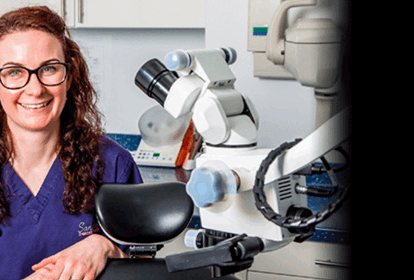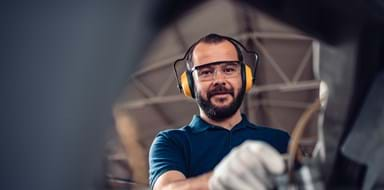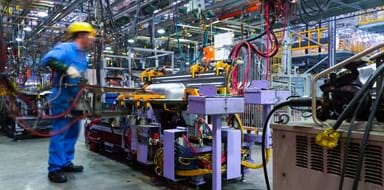A cloud-based platform means patient dental records will be accessible to the whole team simultaneously, therefore increasing the efficiency of the treatment process and improving patient care.
Using a digital impression technique will eliminate the aerosol generated, reducing the safety risk, while improving the efficiency and comfort of the impression making process.
The dental team will be able to show visual representations and simulations of the treatment digitally and increase patient acceptability for treatment and reduce potential anxiety.
The digital scanner will reduce the impression process by around 50% from 15-30 minutes to just a few minutes, making the procedure significantly more efficient.
By decreasing treatment time, Sandstone estimates that it will be able to increase capacity by 25% from its current 50% covid-reduced level.
Whereas analogue impressions require a dentist, digital scanning can be done by trained nurses. This will upskill the workforce and free capacity for the dentist to provide care for more patients requiring higher value treatments.
The new process will eliminate the use of impression materials and models, which currently accounts for 15% of the total waste produced by the practice, reducing costs and increasing profit.
The digital scanner element is forecast to enable 33% growth in revenue the first year and up to 107% over five years.
Once the in-house manufacturing phase is implemented the costs of laboratory manufacture will be eliminated and waiting time of up to three weeks will be reduced to one week, potentially improving to three days as staff are trained and practiced.
Savings from the entire digital workflow are forecast to increase Sandstone’s profit margin by 14%.
Prof Fadi said: “Our investment in technology will establish a faster, more accurate manufacturing process, which will simultaneously improve patient care and satisfaction by reducing time between appointments for patients, the length of them, and the frequency.”
Sandstone plans to capitalise on this increase in capacity by investing in upskilling staff through training and investing in the expansion and growth of the business by increasing working hours and creating two new jobs over the next three years.
The new digital process which transfers impressions electronically to laboratories for manufacture instead of physically delivering or picking them up, will also significantly reduce Sandstone’s carbon footprint by saving three round trips per week, the equivalent to 361,944g CO2 over a year.






